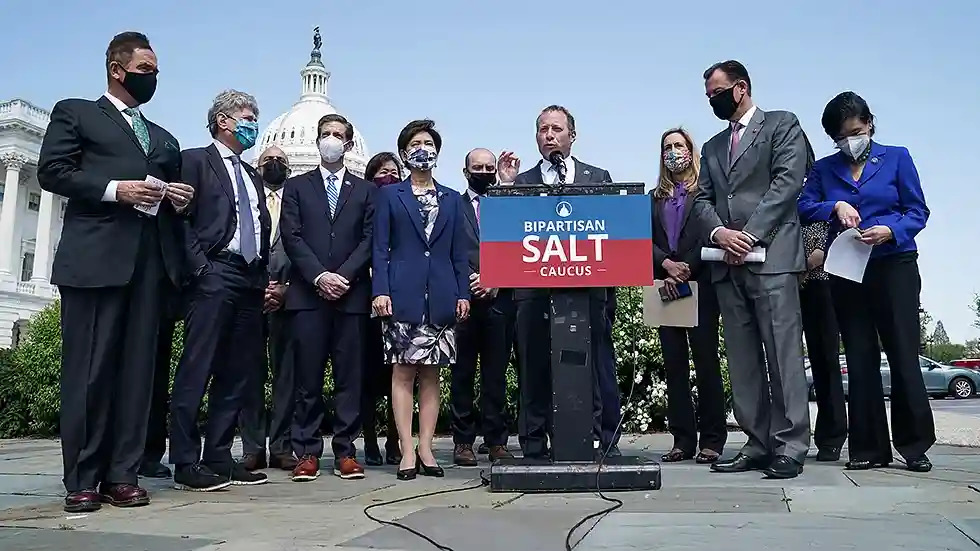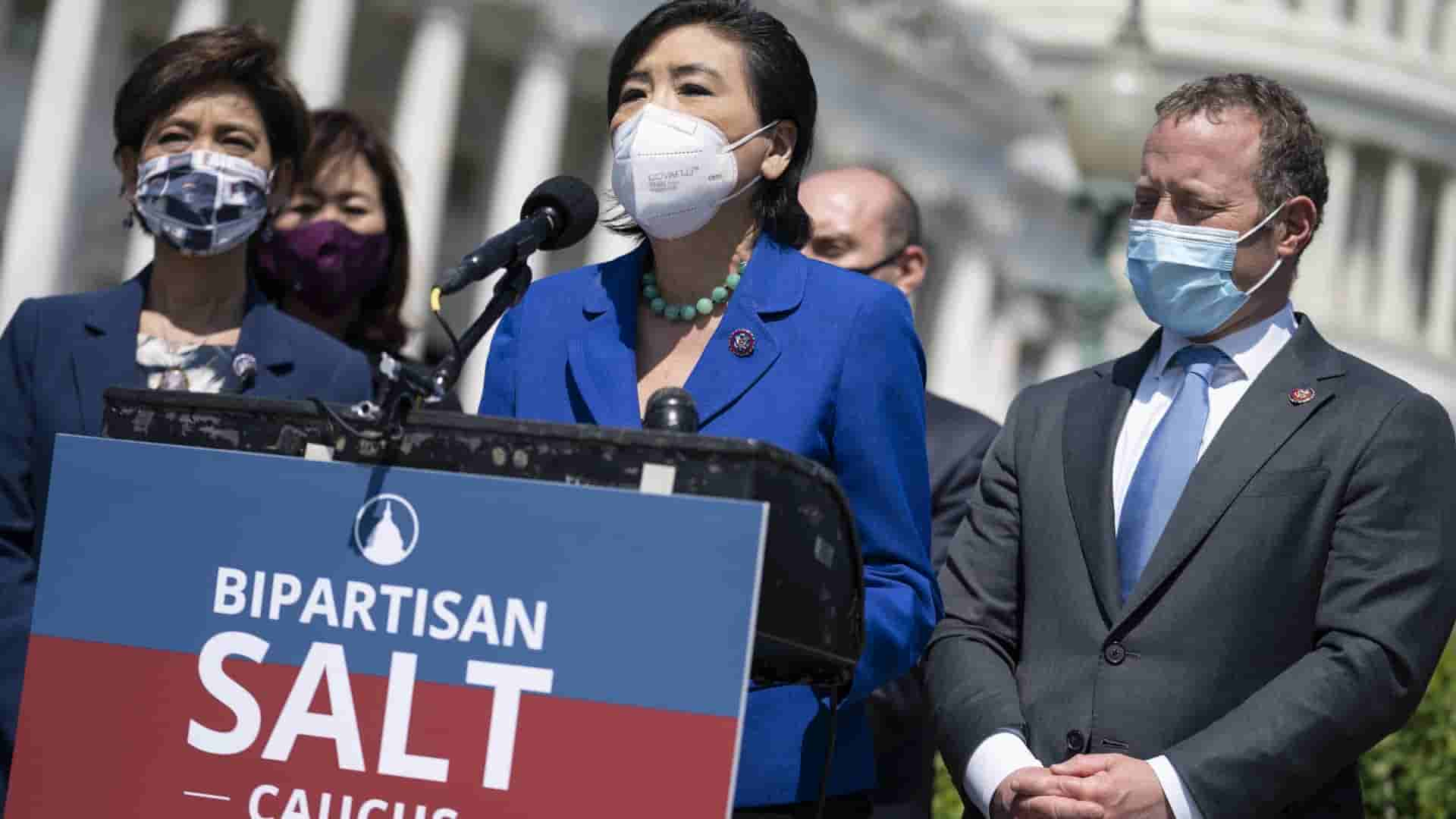House lawmakers have relaunched the SALT Caucus in an effort to repeal the $10,000 threshold for state and municipal tax deductions that was imposed under the Tax Cuts and Jobs Act of 2017. The SALT Caucus is a group of lawmakers who are advocating for the repeal of this deduction limit, which they say unfairly targets taxpayers in high-tax states.

On Thursday, a bipartisan collection of House members from high-tax states established a caucus dedicated to promoting the elimination of the $10,000 cap. (GettyImages)
The $10,000 limit on the deduction for SALT Caucus (state and local taxes) has been a contentious issue since it was introduced in 2017. The amount of state and local taxes a taxpayer could deduct from their federal income tax obligation was limitless prior to the Tax Cuts and Jobs Act. The new legislation, which disproportionately impacts taxpayers in high-tax states like New York, California, and New Jersey, limited this deduction to $10,000 annually.
The SALT Caucus was initially formed in 2018 in response to the deduction limit, and has since been relaunched with renewed efforts to repeal the limit. The group includes lawmakers from both political parties, as well as state and local officials who are advocating for the interests of their constituents.
Critics of the deduction limit argue that it unfairly penalizes taxpayers in high-tax states, who are already paying a significant amount in SALT Caucus (state and local taxes). Supporters of the deduction limit argue that it helps to reduce the federal deficit by limiting the amount of revenue lost to SALT Caucus (state and local tax) deductions.
The debate over the deduction limit has taken on added significance in recent months, as lawmakers in high-tax states are calling for a repeal of the limit as part of the ongoing infrastructure negotiations. President Biden has also indicated his support for repealing the limit, which could help to secure the support of lawmakers from high-tax states for his infrastructure plan.
While the future of the deduction limit is uncertain, there are a few key things to know about how it currently works. First, the $10,000 limit applies to the total amount of SALT Caucus (state and local taxes) that can be deducted, including property taxes, income taxes, and sales taxes. Second, the limit applies to both single filers and married couples filing jointly.
For taxpayers in high-tax states, the $10,000 limit can significantly reduce the amount of their federal tax deduction. For example, a taxpayer in New York City who pays $15,000 in state and local income taxes and $15,000 in property taxes would only be able to deduct $10,000 of those taxes on their federal tax return. This could come up in a significant increase in their federal tax liability.
To mitigate the impact of the deduction limit, some taxpayers have sought to prepay their property taxes in advance of the limit taking effect. However, the IRS has issued guidance stating that prepaying state and local income taxes is not allowed, which has limited the effectiveness of this strategy.
In conclusion, the $10,000 limit on the deduction for SALT Caucus (state and local taxes) has been a contentious issue since it was introduced in 2017. Lawmakers in high-tax states are calling for a repeal of the limit, while supporters argue that it helps to reduce the federal deficit. The relaunch of the SALT Caucus indicates renewed efforts to repeal the limit, which could have significant implications for taxpayers in high-tax states. While the future of the deduction limit is uncertain, taxpayers should be aware of how it currently works and how it could impact their federal tax liability.
Read More:
Alabama Tax Relief: Governor Ivey Suggests Tax Rebates During The State of the State Address.
$742 Million State Tax Debt Relief Package: Brought To Light by Healey-Driscoll Administration

